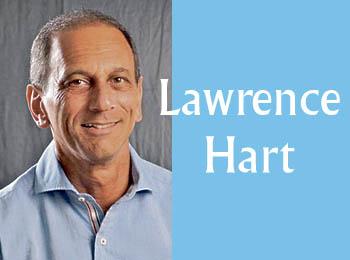For many in our community, it must have been enormously reassuring to read that, according to an “analysis” by Israel’s Ministry of Foreign Affairs, “[Israeli Apartheid Week (IAW)] is a non-event, in general media terms” (CJN, March 10). In the same article, it’s reported that this epiphany apparently mirrors “monitoring” of IAW activities by the Centre for Israel and Jewish Affairs (CIJA). We’re informed about how “CIJA always considers [their] strategic advocacy efforts through the lens of [their] target audiences.” Accordingly, CIJA explains that “as a starting point, this means understanding that most students and faculty members devote very little (if any) consideration to the Israeli-Palestinian conflict.”
This notion is a little difficult to digest. As we’re only too painfully aware, the Israeli-Palestinian conflict is featured in the news almost every day, so students and faculty, regardless of the apparent cloistering that CIJA seems to attribute to them, undoubtedly participate in, and often take the lead in, much of the discourse that’s relevant to the conflict.
And while accepting that the results of CIJA’s “monitoring” may have application to some campuses (usually those in Toronto, Montreal or Ottawa), the overall assertions do not necessarily reflect IAW experiences at many other centres across Canada.
Also, CIJA’s apparent attempts to downplay the impact of the anti-Israel demonstrations at our universities, and its frequent discouragement of grassroots initiatives to actively counter them, convey an unmistakable message of insensitivity and lack of support to those in our community who’ve decided, because of the special needs of their particular campuses, to assert themselves in ways that might not conform with what’s widely seen as the top-down, cookbook, approach that the CIJA leadership tries constantly to impose.
Ironically, though, there may be a kernel of insight into the assertion that IAW has become “a non-event.” What we’re now needing to confront is not just the pernicious problem of this one week designated as IAW, but something that’s far more pervasive.
This relates to the particular terminology that underpins the international campaign to demonize, delegitimize, and ultimately destroy the State of Israel, which has – in no small part as a result of IAW – become firmly entrenched in our day-to-day, year-round conversations on campus. The term “Israeli apartheid” is heard all the time, as though it were fact rather than odious fiction.
Moreover, since IAW first embedded itself in the academic calendar in 2005 – at the University of Toronto – tens of thousands of graduating students have already been subjected to its vocabulary. As a consequence, it’s likely that many will leave the academy with a certain modicum of suspicion that Israel is responsible for at least some – perhaps much – of the turmoil that it’s blamed for. This will be the true legacy of IAW, long after the week itself has given way to the next fad that serves to galvanize Israel-haters on our campuses.
The obvious time to have eradicated the tumour was at its source nine years ago, but even then, the overriding view of segments of our organized Jewish community was that IAW did not merit serious attention. As could easily have been predicted, we’ve paid a high price for such inertia.
